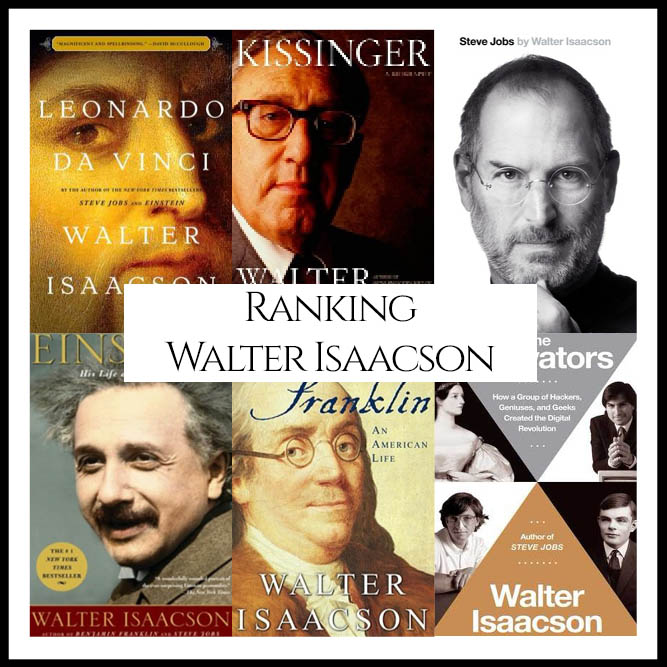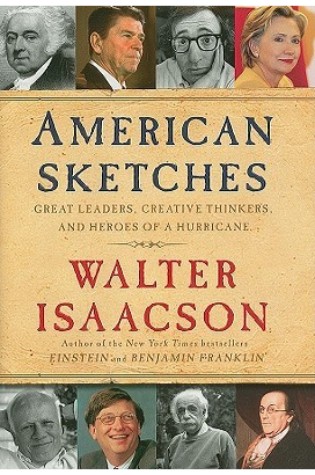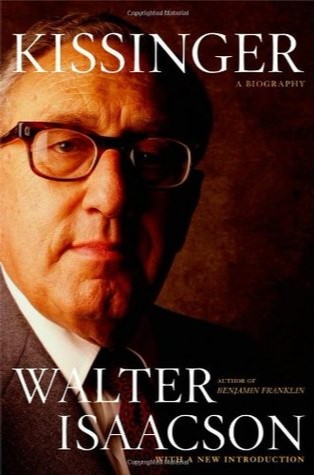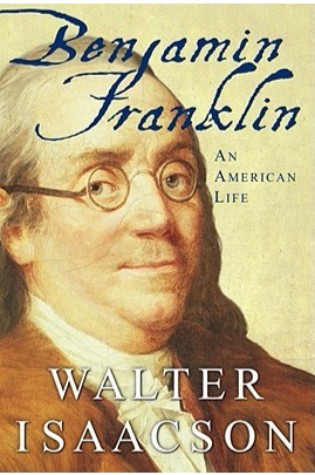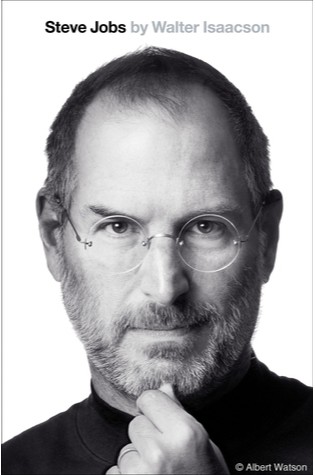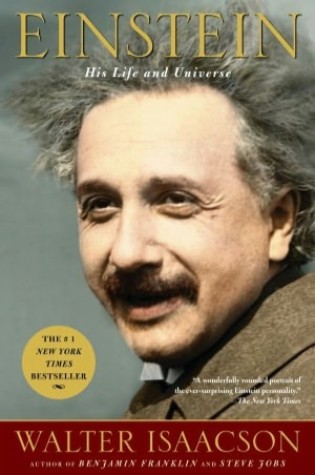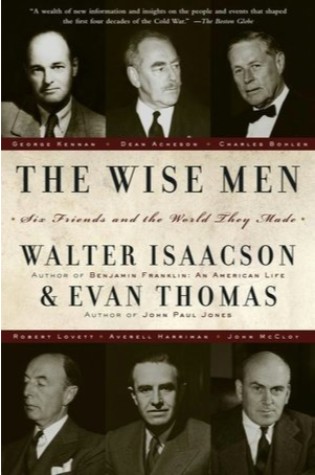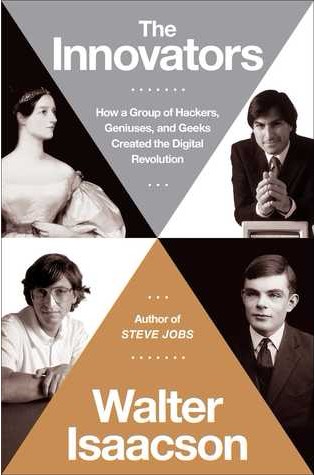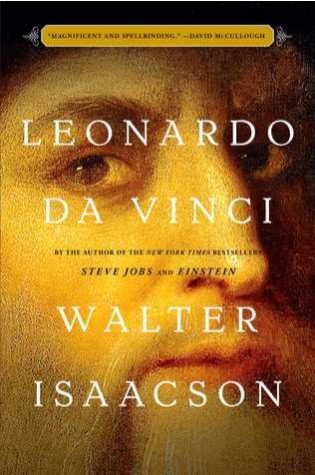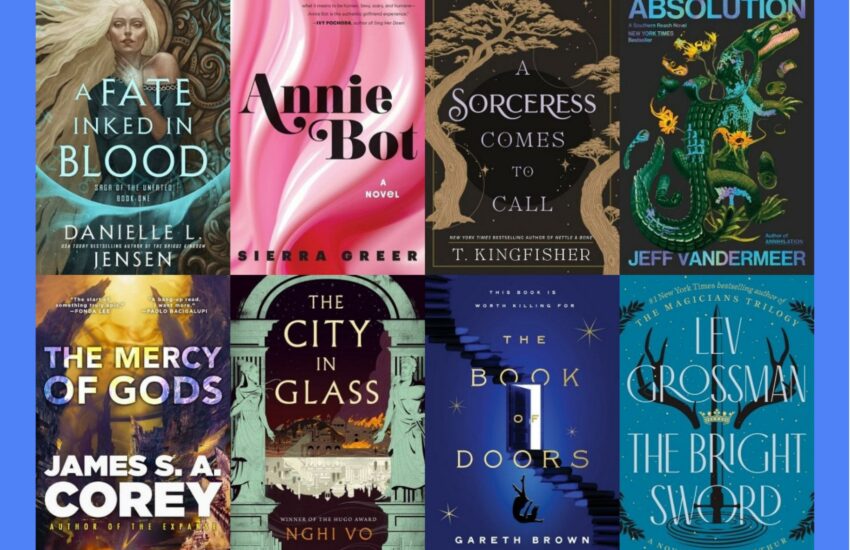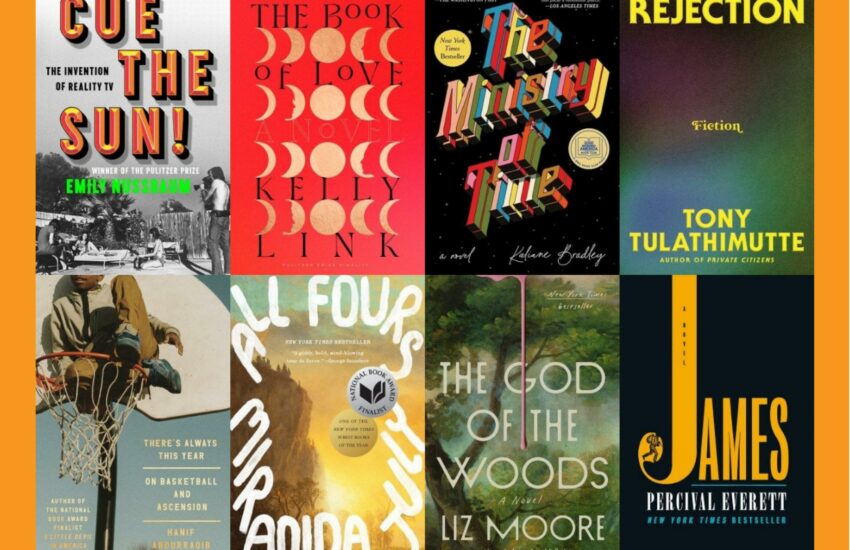Ranking Author Walter Isaacson’s Best Books (A Bibliography Countdown)
“What are Walter Isaacson’s Best Books?” We looked at all of Isaacson’s authored bibliography and ranked them against one another to answer that very question!
We took all of the books written by Walter Isaacson and looked at their Goodreads, Amazon, and LibraryThing scores, ranking them against one another to see which books came out on top. The books are ranked in our list below based on which titles have the highest overall score between all 3 review sites in comparison with all of the other books by the same author. The process isn’t super scientific and in reality, most books aren’t “better” than other books as much as they are just different. That being said, we do enjoy seeing where our favorites landed, and if you aren’t familiar with the author at all, the rankings can help you see what books might be best to start with.
The full ranking chart is also included below the countdown on the bottom of the page. We will update the article if/when a new book by Walter Isaacson is released. Although it probably won’t be immediate so the scores on each site have time to settle and aren’t overly influenced by the early, usually much more opinionated, users.
Happy Scrolling!
The Top Book’s Of Walter Isaacson
8 ) American Sketches (2009)
Review Website Ranks:
- Goodreads: 8
- Amazon: 8
- LibraryThing: 8
In this collection of essays, the brilliant, acclaimed biographer Walter Isaacson reflects on lessons to be learned from Benjamin Franklin, Albert Einstein, Bill Gates, Henry Kissinger, Ronald Reagan and Mikhail Gorbachev, Hillary Clinton and Bill Clinton, and other interesting characters he has chronicled both as biographer and journalist. He writes also about how he became a writer, the challenges for journalism in the digital age, and offers loving tributes to his hometown of New Orleans.
7 ) Kissinger: A Biography (1992)
Review Website Ranks:
- Goodreads: 7
- Amazon: 5
- LibraryThing: 7
By the time Henry Kissinger was made secretary of state in 1973, he had become, according to the Gallup Poll, the most admired person in America and one of the most unlikely celebrities ever to capture the world’s imagination. Yet Kissinger was also reviled by large segments of the American public, ranging from liberal intellectuals to conservative activists. Kissinger explores the relationship between this complex man’s personality and the foreign policy he pursued. Drawing on extensive interviews with Kissinger as well as 150 other sources, including U.S. presidents and his business clients, this first full-length biography makes use of many of Kissinger’s private papers and classified memos to tell his uniquely American story. The result is an intimate narrative, filled with surprising revelations, that takes this grandly colorful statesman from his childhood as a persecuted Jew in Nazi Germany, through his tortured relationship with Richard Nixon, to his later years as a globe-trotting business consultant.
6 ) Benjamin Franklin: An American Life (2003)
Review Website Ranks:
- Goodreads: 6
- Amazon: 1
- LibraryThing: 6
Benjamin Franklin is the founding father who winks at us, the one who seems made of flesh rather than marble. In a sweeping narrative that follows Franklin’s life from Boston to Philadelphia to London and Paris and back, Walter Isaacson chronicles the adventures of the runaway apprentice who became, over the course of his eighty-four-year life, America’s best writer, inventor, media baron, scientist, diplomat, and business strategist, as well as one of its most practical and ingenious political leaders. He explores the wit behind Poor Richard’s Almanac and the wisdom behind the Declaration of Independence, the new nation’s alliance with France, the treaty that ended the Revolution, and the compromises that created a near-perfect Constitution.
5 ) Steve Jobs (2011)
Review Website Ranks:
- Goodreads: 2
- Amazon: 5
- LibraryThing: 3
“Based on more than forty interviews with Jobs conducted over two years—as well as interviews with more than a hundred family members, friends, adversaries, competitors, and colleagues—Walter Isaacson has written a riveting story of the roller-coaster life and searingly intense personality of a creative entrepreneur whose passion for perfection and ferocious drive revolutionized six industries: personal computers, animated movies, music, phones, tablet computing, and digital publishing.
At a time when America is seeking ways to sustain its innovative edge, and when societies around the world are trying to build digital-age economies, Jobs stands as the ultimate icon of inventiveness and applied imagination. He knew that the best way to create value in the twenty-first century was to connect creativity with technology. He built a company where leaps of the imagination were combined with remarkable feats of engineering. “
4 ) Einstein: His Life and Universe (2007)
Review Website Ranks:
- Goodreads: 3
- Amazon: 1
- LibraryThing: 5
“How did his mind work? What made him a genius? Isaacson’s biography shows how his scientific imagination sprang from the rebellious nature of his personality. His fascinating story is a testament to the connection between creativity and freedom.
Based on newly released personal letters of Einstein, this book explores how an imaginative, impertinent patent clerk—a struggling father in a difficult marriage who couldn’t get a teaching job or a doctorate—became the mind reader of the creator of the cosmos, the locksmith of the mysteries of the atom, and the universe. His success came from questioning conventional wisdom and marveling at mysteries that struck others as mundane. This led him to embrace a morality and politics based on respect for free minds, free spirits, and free individuals.”
2 ) The Wise Men: Six Friends and the World They Made (1986)
Review Website Ranks:
- Goodreads: 4
- Amazon: 1
- LibraryThing: 3
A captivating blend of personal biography and public drama, The Wise Men introduces six close friends who shaped the role their country would play in the dangerous years following World War II. They were the original best and brightest, whose towering intellects, outsize personalities, and dramatic actions would bring order to the postwar chaos and leave a legacy that dominates American policy to this day: Averell Harriman, the freewheeling diplomat and Roosevelt’s special envoy to Churchill and Stalin; Dean Acheson, the secretary of state who was more responsible for the Truman Doctrine than Truman and for the Marshall Plan than General Marshall; George Kennan, self-cast outsider and intellectual darling of the Washington elite; Robert Lovett, assistant secretary of war, undersecretary of state, and secretary of defense throughout the formative years of the Cold War; John McCloy, one of the nation’s most influential private citizens; and Charles Bohlen, adroit diplomat and ambassador to the Soviet Union.
2 ) The Innovators: How a Group of Inventors, Hackers, Geniuses, and Geeks Created the Digital Revolution (2014)
Review Website Ranks:
- Goodreads: 5
- Amazon: 1
- LibraryThing: 2
The Innovators is a masterly saga of collaborative genius destined to be the standard history of the digital revolution—and an indispensable guide to how innovation really happens. Isaacson begins the adventure with Ada Lovelace, Lord Byron’s daughter, who pioneered computer programming in the 1840s. He explores the fascinating personalities that created our current digital revolution, such as Vannevar Bush, Alan Turing, John von Neumann, J.C.R. Licklider, Doug Engelbart, Robert Noyce, Bill Gates, Steve Wozniak, Steve Jobs, Tim Berners-Lee, and Larry Page.
1 ) Leonardo Da Vinci (2017)
Review Website Ranks:
- Goodreads: 1
- Amazon: 5
- LibraryThing: 1
“Based on thousands of pages from Leonardo’s astonishing notebooks and new discoveries about his life and work, Walter Isaacson weaves a narrative that connects his art to his science. He shows how Leonardo’s genius was based on skills we can improve in ourselves, such as passionate curiosity, careful observation, and an imagination so playful that it flirted with fantasy.
He produced the two most famous paintings in history, The Last Supper and the Mona Lisa. But in his own mind, he was just as much a man of science and technology. With a passion that sometimes became obsessive, he pursued innovative studies of anatomy, fossils, birds, the heart, flying machines, botany, geology, and weaponry. His ability to stand at the crossroads of the humanities and the sciences, made iconic by his drawing of Vitruvian Man, made him history’s most creative genius.
His creativity, like that of other great innovators, came from having wide-ranging passions. He peeled flesh off the faces of cadavers, drew the muscles that move the lips, and then painted history’s most memorable smile. He explored the math of optics, showed how light rays strike the cornea, and produced illusions of changing perspectives in The Last Supper. Isaacson also describes how Leonardo’s lifelong enthusiasm for staging theatrical productions informed his paintings and inventions.”
Walter Isaacson’s Best Books
Walter Isaacson Review Website Bibliography Rankings
| Book | Goodreads | Amazon | LibraryThing | Overal Rank |
| Leonardo Da Vinci | 1 | 5 | 1 | 1 |
| The Wise Men: Six Friends and the World They Made | 4 | 1 | 3 | 2 |
| The Innovators: How a Group of Inventors, Hackers, Geniuses, and Geeks Created the Digital Revolution | 5 | 1 | 2 | 2 |
| Einstein: His Life and Universe | 3 | 1 | 5 | 4 |
| Steve Jobs | 2 | 5 | 3 | 5 |
| Benjamin Franklin: An American Life | 6 | 1 | 6 | 6 |
| Kissinger: A Biography | 7 | 5 | 7 | 7 |
| American Sketches | 8 | 8 | 8 | 8 |
